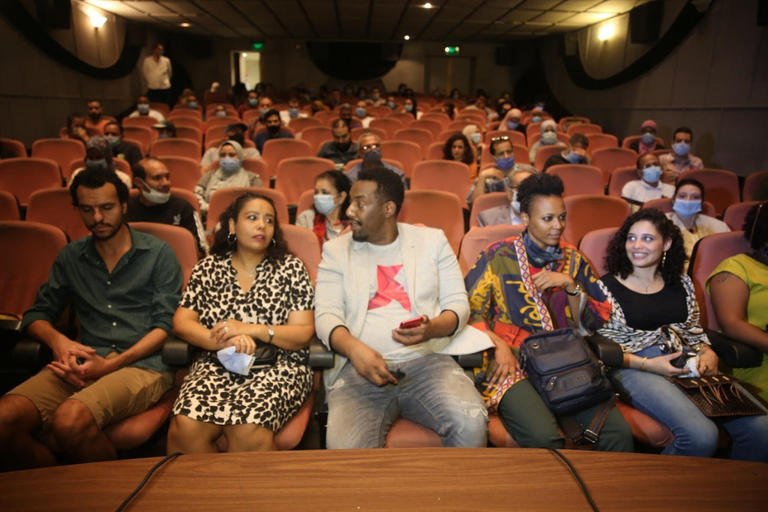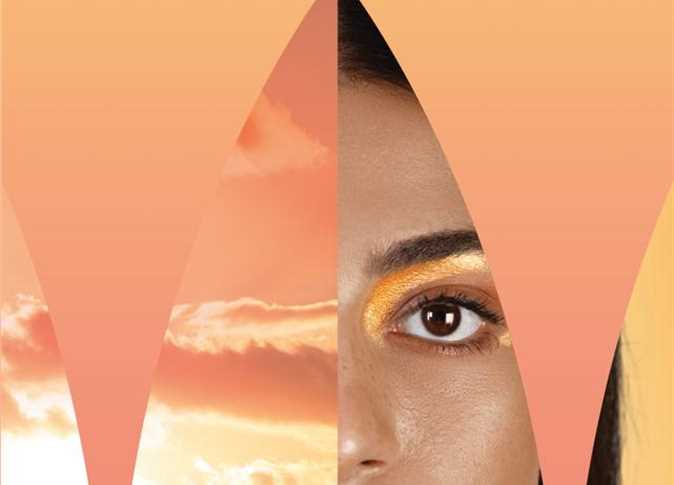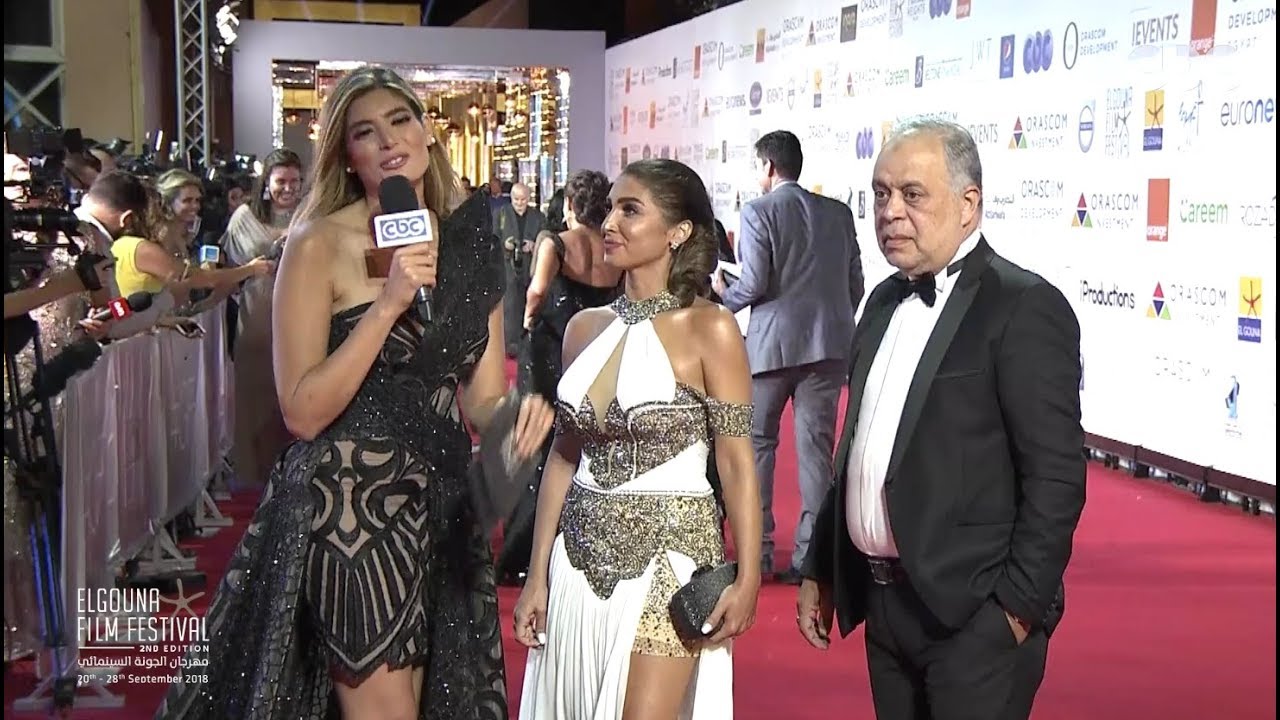Grandmothers cooking their signature dishes, hometown visits that have been postponed for decades, young immigrants that turn into street children and Muslem women that broke the mold. Dozens of fine human stories stitched to memories and dreams are portrayed in this year’s Arab-Hispanic Women’s Film Festival, entitled “Among Filmmakers.”
The seven-day event held at the Center of Creativity, on the Opera House Premises, is a result of a joint project between Egyptian production company Klaketa Arabe and Spanish cultural association Klaketa Iberoamericana. “Among Filmmakers” is a cinema exchange program between Arab and Hispano-American countries that aims to offer an alternative view to stereotypes about women, breaking away from any discourse that contributes to ethnic, religious, sexual and gender discrimination.
“This year, countries like Lebanon, Morocco, Syria and Palestine are participating,” explained director and festival coordinator Amal Ramsis, adding that the festival would travel to several cities in the Arab world, Spain and Latino-America. The festival featured 14 films–mostly documentaries–in addition to 13 one-minute movies from El-Salvador and 20 one-minute movies from Cairo. “The films are created by women but are not necessarily about women issues,” stressed Ramsis.
Though varied in their cultural backgrounds, there is a smooth, cross-cutting theme that binds all such films together: namely, a woman’s perspective. The opening film titled Unveiled Views (2009) features five exceptional Muslem women from Bosnia, Iran, Turkey, Afghanistan and Pakistan. Being shown for the first time in an Arab country, Alba Sotorra, the Spanish director, explained that her film came from her innate need to know the truth.
“The information that we get from the news about Muslem countries gives us the feeling that we know everything about them, which isn’t true,” Sotorra noted, explaining that most western feminists believe they have the answer to eastern women’s problems, often without ever bothering to listen.
She came across women who sought art as a tool of resistance to all cultural barriers without any western, magical solutions. Sotorra’s women were: a victim of the Bosnian war who later worked as a landmine detector; a young Afghani poetess that grew up under Taliban; a Turkish human rights lawyer and activist who tells of her life threatening battles against violence; Iranian director Rakhshan Bani-Etemad; and renowned Pakistani folk dancer Nahid Siddiqui.
This year’s festival focuses on documentary movies. Crossing The Strait by Eva Fernandez discusses the status of underprivileged Moroccan children who attempt to cross the Straits of Gibraltar in search of a better life in Spain, and how most of these young illegal immigrants end up as street children. Good-morning Qalqilia by Dima Abu Ghoush features the daily struggle of residents of Palestinian town Qalqilia, who are surrounded by the Israeli separation wall and their resistance. I Loved a Lot by Dalila Endari follows the life of 75-year-old Fatemah who escorted the Moroccan troops when she was twenty, and how she ended up living a life of adventure.
The human angle by which such stories were told, stressing on the average-yet-forgotten people whose lives are so unique, is remarkable. The total avoidance of moral or social stigmas is quite refreshing.
On the other hand, an air of nostalgia dominates films like Beyond the Railway Tracks by Franca Serra about the director’s visit to her grandmother, a sentimental journey that highlights the lonely life of the elderly. Life by Amal Ramsis follows the love story between her politically-active parents. Take Me Home by Mais Darwzah tells the Palestinian struggle from the perspective of three generations of women in exile. I am She Who Carries Flowers to Her Grave by Hala Abdallah is about going home to Syria after decades to reflect on all that was left behind.
Indeed, such documentaries prove that real life is far richer and much more interesting than fiction can ever be.
The one-minute feature films are a unique feature of the festival. The one-minute movies are unedited, one-shot movies, the outcome of workshops for women with no prior knowledge of film-making. The idea that initially began in Spain as a means of connecting Spanish women now includes the Arab world and Latin America. On the one hand, Rebellions, by 13 women of ElSalvador, reveals the stereotyping of women.
Good Girls Go to Heaven and Bad Girls Go Everywhere, meanwhile, features three gloved hands, two in colored cloths, whose fingers wander around the table, while the white satin hand gloves move monotonously towards a big plastic blue ball. Letters among Women, by 20 Egyptian women, is a rich example of women’s interpretations of the social status quo. A group of different women–veiled, unveiled, wearing makeup and not–were equally harassed by the same male figure who managed to see provocative behavior in all of them.
Another movie unveiling the social pressure that Egyptian women enforce among themselves is how several women ridicule their friend when she asked them what they thought of a photograph of her beloved. He is too short, too tall, too young–but finally the camera captures the man in the photograph who is none other than famous Egyptian crooner Abdel-Halim Hafiz.
“They oppressed her dream; she was denied to even dream differently, “explained director Howida Kamel. Kamel explained how joining the workshop had been a great experience. Working as a head of public relations, Kamel seldom has time to nourish her passion for writing. But after the workshop, she directed her first documentary and is now in the editing process.
“I find it a very intimate realm, where women work together harmoniously to create short and intensive films that reflect their concerns,” she said.




